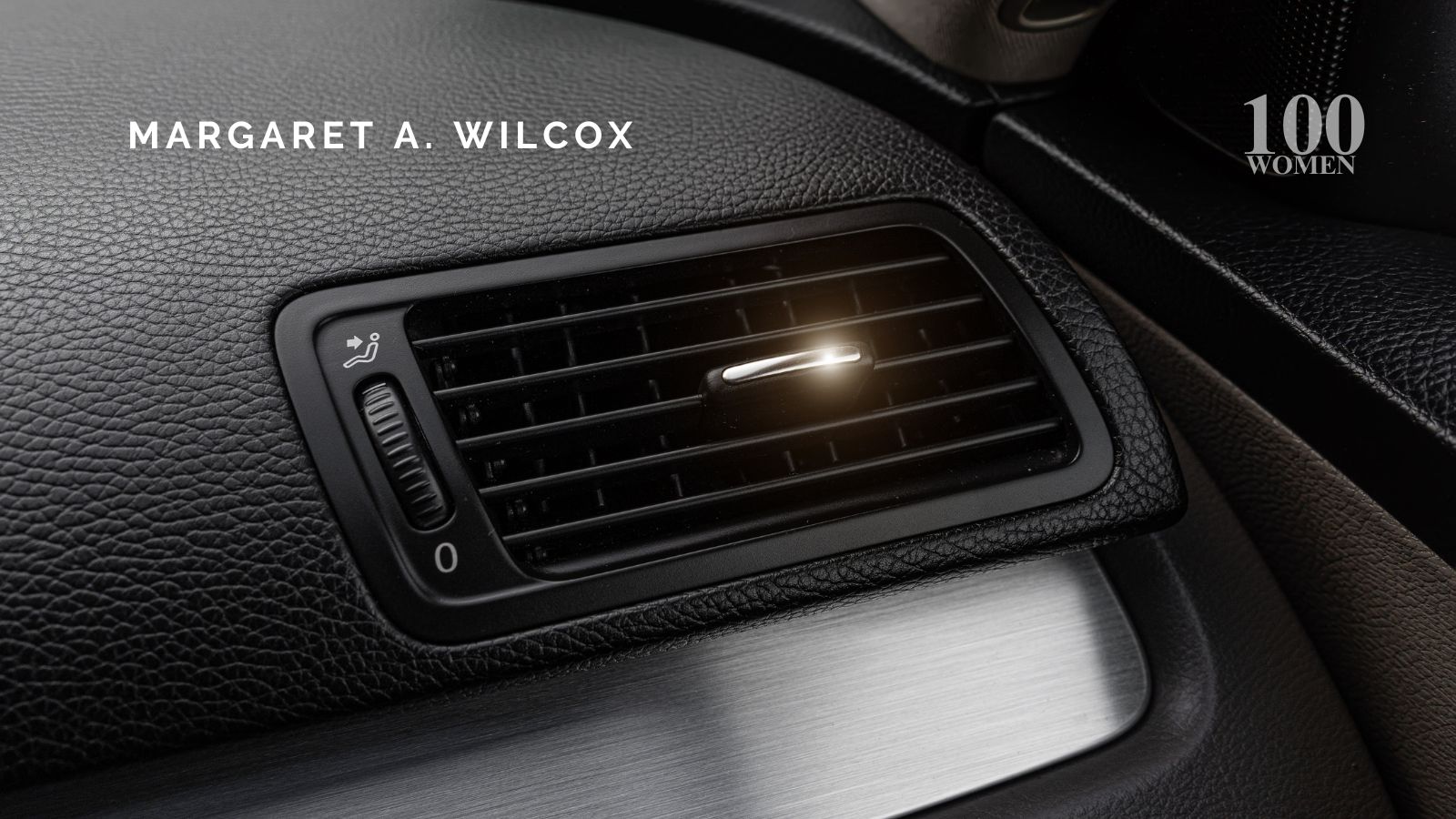
When we think about the comfort of modern driving, a warm car on a cold morning often comes to mind. Yet very few of us stop to wonder who first thought of it. The answer takes us back to Chicago in the late 19th century, to an inventor named Margaret A. Wilcox, who decided that riding in the bitter cold didn’t have to be the norm.
In the 1800s, invention and engineering were largely closed off to women. Patents were almost always filed by men, and those women who had ideas often had to sign them over to their husbands. Margaret A. Wilcox stood out because she filed hers in her own name. She wasn’t content to simply endure problems; she sought to solve them.
In 1893, she received a patent for a car-heating system. The concept was simple yet forward-thinking: direct the hot air produced by the engine into the passenger compartment. Up until then, drivers and passengers had to brave the weather with little protection. Her idea meant that the very heat produced by the machine itself could be used for human comfort.
It wasn’t perfect. Early models had no way to control the flow of heat. If the engine grew hot, passengers did too, often uncomfortably so. But that was the nature of early invention—planting a seed that others would later refine. Wilcox’s system was the foundation on which modern, adjustable car heaters were built.
Very little is known about Margaret’s life beyond this achievement. Like many women of her time, her name faded into obscurity while men’s contributions were widely recorded and remembered. But what we do know is that she looked at an everyday problem—cold travel—and found a practical solution.
Today, every time we sit in a warm car on a winter’s morning, we benefit from her vision. Margaret A. Wilcox reminds us that comfort and innovation often begin with one person daring to improve what everyone else takes for granted.
Her invention may have been just one step, but it was an important one. It’s a story that belongs not only in the history of automobiles but also in the wider narrative of women who shaped technology long before they were openly welcomed in those spaces.










